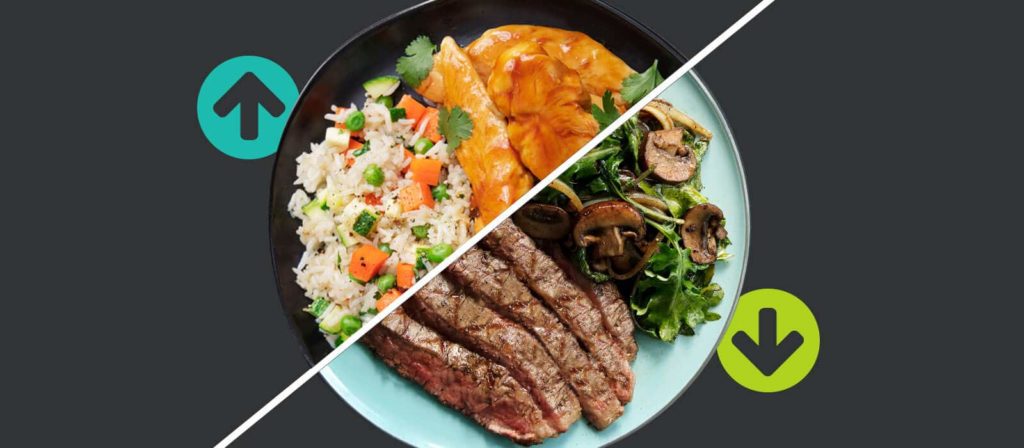For your body to function properly, the trillions of cells inside it must communicate constantly. When these cells’ ability to send and receive signals is compromised, the breakdown in communication can lead to a wide range of chronic and metabolic conditions. Some of these conditions are common, such as high cholesterol, uncontrolled cell proliferation, and high blood sugar and insulin sensitivity.
For example, cholesterol makes up 40 percent of every cell’s outer membrane and modulates the cell’s signal receptor proteins. High cholesterol, which affects 95 million adults in the United States, can wreak havoc on cellular signal modulation. You might not experience symptoms, but this havoc raises your risks for cardiovascular diseases, such as atherosclerosis, and can contribute to uncontrolled cell proliferation that leads to cancer.
Blood sugar, or glucose, is also vital. It provides the fuel that cells need to function. Normally, insulin molecules bind to a cell’s signal receptors and tell it to absorb sugar. If the cell doesn’t receive this signal, then it won’t absorb the sugar, your glucose levels will spike, and you’ll become much more insulin-resistant. For the nearly 30.3 million Americans with diabetes, this is often a significant factor in their development of the disease.
What Cell Nutrition Looks Like
The need for nutrients to fuel your body is no secret, but the relationship between these nutrients and your cells is complicated. For example, in addition to raising your risks of diabetes, research shows that insulin resistance can also increase cholesterol synthesis. Both insulin resistance and high cholesterol can be largely attributed to consistently poor nutrition, including an excess of processed carbs and unhealthy fats.
Specific cell signals add more complexity to this relationship. Before insulin can bind to your body’s cell receptors, your pancreas has to release the hormone. Type 2 diabetes might result from cell receptors malfunctioning and failing to absorb sugar. Yet in type 1 diabetes, the pancreatic cells lose the signal to produce insulin in the first place. In either case, sugar accumulates to toxic levels in the blood, but each condition involves separate cellular signal malfunctions.
Signals also control cell growth and division throughout your body — a process that is so vital that your body automatically keeps it tightly controlled through checks and balances. However, like all cell functions, those checks and balances depend on communication. When that communication breaks down, cells can learn to grow and divide without signals, quickly becoming cancerous.
In modern society, our cells are constantly bombarded with free radicals, heavy metals, toxic waste, foreign substances, infectious microbes, and more. Such an environment can dramatically affect our cells’ abilities to function and communicate properly. Therefore, keeping cells healthy and fully functional through focused nutrition planning should be a top priority for everyone.
Train Your Cells Through Ketosis
Nearly everything that relates to cellular function — from receptor proteins to insulin, cholesterol, and glucose management — can be tied to your diet. That’s why successfully managing diseases such as diabetes and cardiovascular disease often requires customized meal planning. It’s also why certain meal plans, such as the ketogenic diet, are becoming popular for helping people prevent or manage other chronic conditions.
For example, ketogenic diets severely restrict how many carbs you consume, leaving no more sugar for your body to use as fuel. Instead, your body has to fuel your cells by burning fat to produce ketones in a process known as ketosis. Restricting carbs lowers your blood sugar, which means your pancreas doesn’t have to produce as much insulin. Your body becomes more sensitive to the hormone, and your cells become more likely to absorb any sugar it consumes afterward.
Additionally, a ketogenic meal plan helps you normalize the amount of protein and fat in your body. Aside from managing a metabolic disease such as diabetes, this also helps you lose weight faster and keep it off permanently. However, nutritionally training your cells is just like physically training your body. You’ll have to get used to it before you can start benefiting from it.
Before You Start a Keto Diet
A well-formulated keto diet will change how your body functions on a cellular level, and you might experience a few flulike symptoms at first. Fogginess and discomfort are common as your body uses up the last of its glucose, though you can moderate them by taking precautions before starting the diet. For example, most of the initial symptoms that dieters report can be attributed to lack of electrolytes.
Stock up on electrolyte-rich foods such as avocados, greens, nuts, and seeds. The fattiest ones, such as almonds, pistachios, pecans, walnuts, and pumpkin seeds, provide a healthy dose of sodium and magnesium to help prevent muscle cramps and headaches. You also need plenty of macro- and micronutrients to keep your cells well-nourished, so avoid junky and heavily processed foods that have no nutritional value.
Most important, opt for grass-fed meats, butters, and healthful fats. However, avoid any foods you’re sensitive to or that make you prone to bloating and inflammation. Also, avoid starting the diet if you’re under an unusual amount of stress, or take steps to reduce it — i.e., get enough sleep, exercise regularly, do yoga, or meditate. Chronic stress raises your cortisol levels and elevates your blood sugar, even in the absence of carbs, and can hinder your ability to enter ketosis.
Training your cells to work together more efficiently might mean subjecting your body to a rigorous change through controlled ketosis. Be patient as your body gets used to it and adjusts. Symptoms such as bloat and discomfort will subside if you keep going, and before long, your body will be more adept at energizing itself without sugar.










